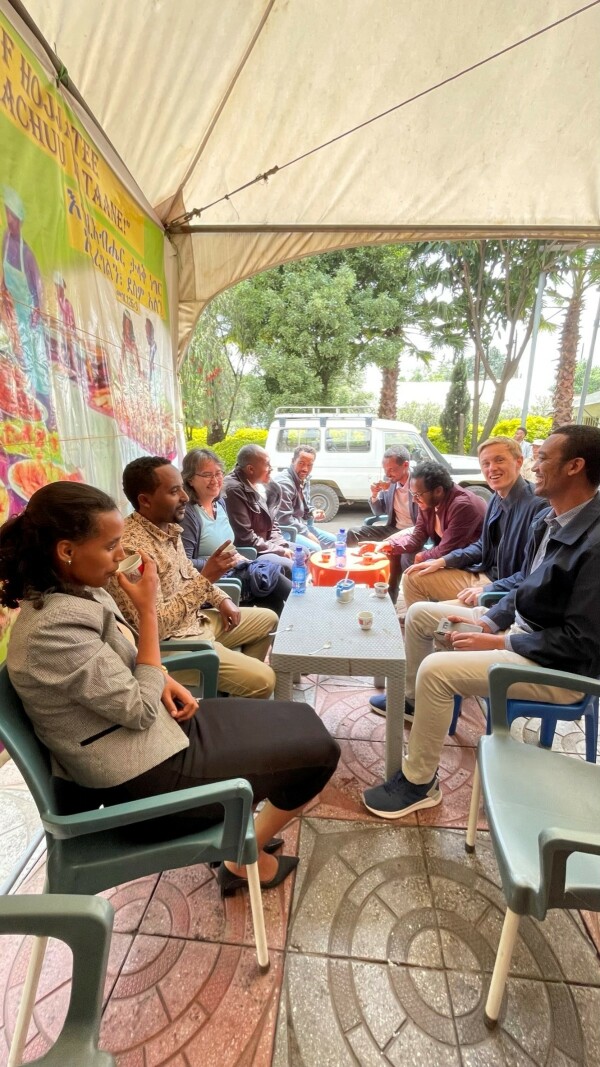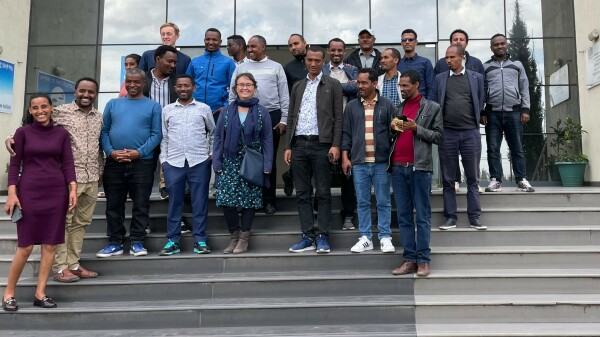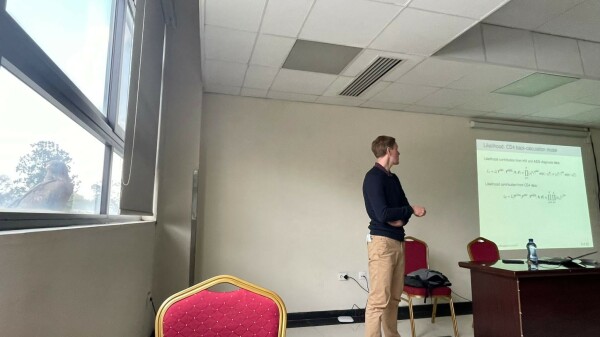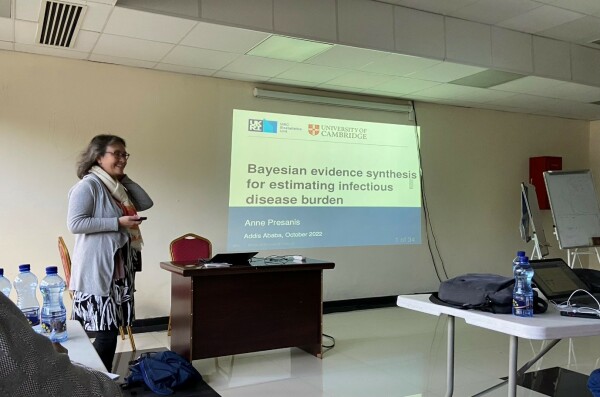BSU researchers teach Bayesian statistics course in Ethiopia
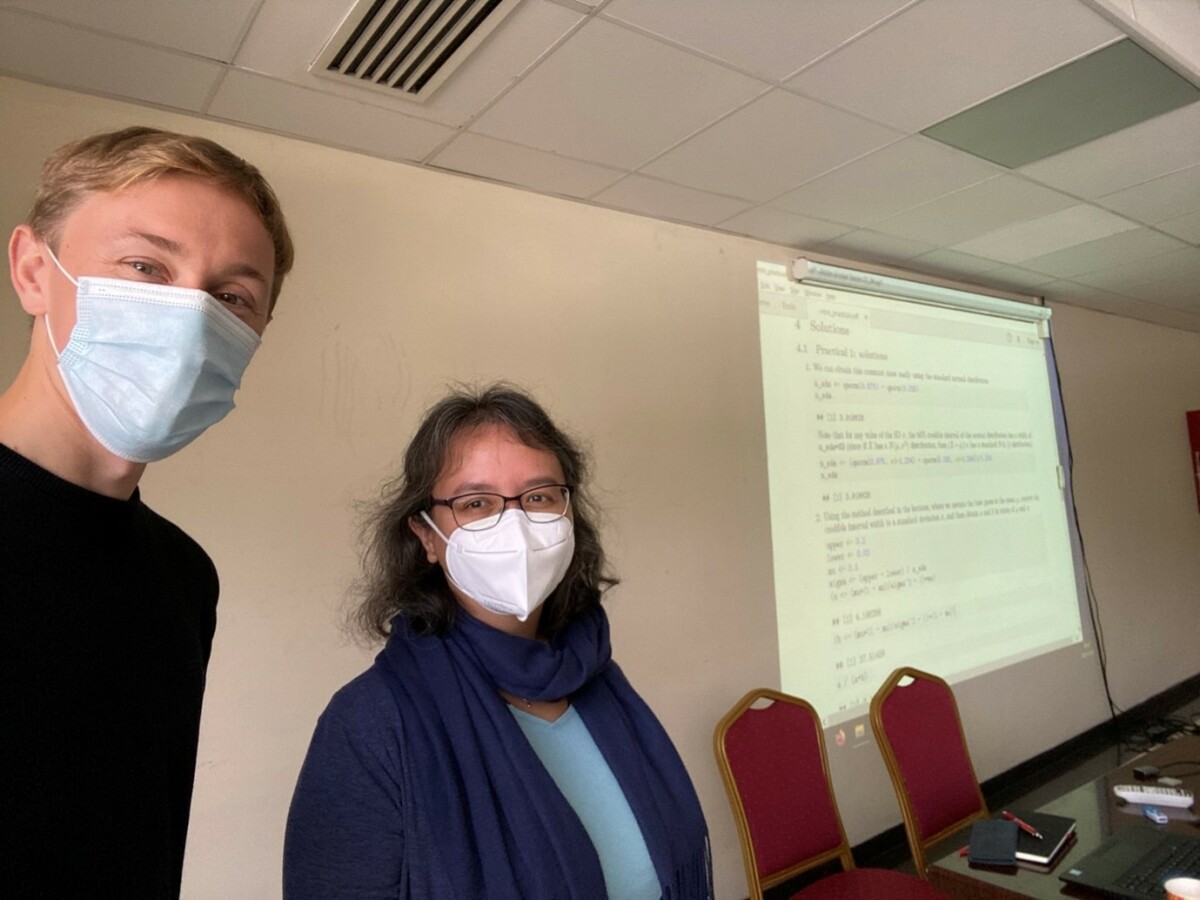
In October 2022 researchers from the MRC Biostatistics Unit travelled to Addis Ababa in Ethiopia to teach a short course on Bayesian Statistics, including a one-day workshop where Ethiopian PhD students could present their current research and gain feedback from the other course participants. The 30 attendees on the course included statistics PhD students, lecturers, and professors from Addis Ababa, Hawassa, and Bahir Dar Universities, as well as academics from the Ethiopian Statistics Society.
The training course was run by four researchers from the BSU: Dr Anne Presanis and PhD student Peter Kirwan from Prof. Daniela De Angelis’ group travelled in-person to the Ethiopian Public Health Institute (EPHI) to lecture and provide guidance to students with the practical sessions in the course, and Dr Chris Jackson and Dr Rob Goudie joined virtually from Cambridge, giving several lectures throughout the 8-day training course. The course introduces students to Bayesian statistical methods in biomedical settings, and provides skills for designing, assessing and interpreting Bayesian analyses. Bayesian statistical methods are used widely in epidemiological research, and so are of great interest to many biomedical and applied statistics researchers in Ethiopia.
Presentations at the one-day workshop included temporal-spatial modelling of malaria, regression models to understand predictors of unmet need for contraceptives, and risk prediction models for post-operative complications in renal transplant patients in Ethiopia. Anne and Peter also presented examples of their own Bayesian statistical modelling, as well as that of others in the De Angelis group, to estimate disease burden of COVID-19, HIV, and influenza.
Dr Zeytu Asfaw, Associate Professor at Addis Ababa University, said: “We all learnt a lot from the course given by Anne and colleagues. It was very directive for future research, and I hope we will strengthen our collaboration with the BSU.”
The training and networking events were funded by Cambridge-Africa, which aims to catalyse new and strengthen existing collaborations between researchers in Africa and Cambridge and support high quality training activities, through the Alborada Fund. The events were part of a wider collaboration to support the development of the Ethiopian statistics PhD programmes at the participating universities, originally initiated by Hawassa University partnered with Norwegian universities (https://www.norad.no/en/front/funding/norhed/projects/hawassa-university--phd-programme-in-mathematical-and-statistical-sciences/), and now also involving several Ethiopian and European universities. Ethiopian PhD supervisors are partnered with a mentor at one of the European universities to co-supervise a student: Anne, together with Denekew Bitew, has been co-supervising a student, Feysal Kemal Mohammed, at Hawassa University, working on longitudinal and time series models of HIV testing, diagnosis and treatment. Feysal previously visited the BSU for several months earlier in his PhD.
Peter Kirwan, PhD student at the BSU, who helped to deliver the course, said: “The opportunity to travel and provide training to Ethiopian students and researchers was a huge privilege for me. Despite the present difficulties in Ethiopia all the students were able to attend the course and showed huge enthusiasm throughout! I’m grateful to all the course attendees and our collaborators in Ethiopia who went out of their way to make us feel so welcome!”
Anne Presanis, Senior Statistician at the Unit, who led the course, added: “We owe huge thanks to our hosts at EPHI, Mohammed Ahmed and Dr Mulugeta Geremew, as well as our collaborators in arranging the course, Dr Denekew Bitew (Bahir Dar University) and Prof. Zeytu Gashaw (Hawassa & Addis Ababa Universities). We really appreciated the dedication and engagement all the participants demonstrated in learning, discussing and asking great questions.”
A few photos of Anne and Peter at the training are included below.
